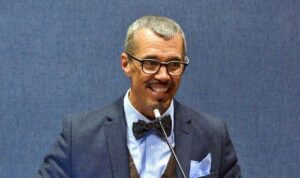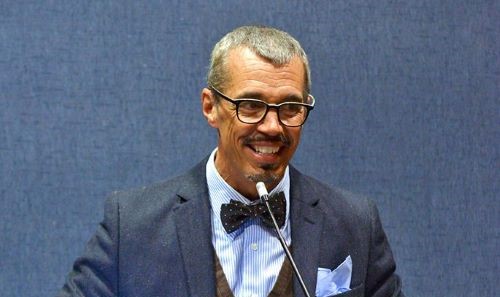
DANBURY, Connecticut — In a 1962 essay in The New York Times, writer and social prophet James Baldwin stated, “Not everything that is faced can be changed, but nothing can be changed until it is faced.” I suspect that such a claim makes obvious sense to anyone who has ever tried to raise a child, deal with a neighbor, negotiate with a co-worker, or even adopt a pet. However, comes word last week — as it has so frequently lately — that the state of Florida has once again outdone itself in ensuring that its students are unequipped to deal with the reality of life in these 21st century United States by implementing upon its citizens (subjects?) more bans on books and initiatives for diversity, equity, and inclusion, not only in universities but also in elementary and secondary schools; indeed, one public school in Miami last week was found to be requiring parental permission for children to attend events associated with Black History Month, an annual recognition of achievement, accomplishment, and distinction since 1976, and one that my home institution of Western Connecticut State University happily embraces.
As a professor of theatre arts and English — one who has been fortunate to create and teach varied courses focusing on various cultures and cultural products, from “African American Literature” to “Black/American Theatre” to “Americans in the Confederacy,” among others — I see every day the critical value of Black History Month and continually allowing — no, encouraging — students to face issues in this country that need to be changed.
Recognizing the historical truth that “there has never been a time when the people who have banned books were the good guys,” I ensure that my students are discovering the value of reading historical documents — literature and history in one package — as well as the values of historical fact, as recounted by the people who lived them, and not only as subjective history books have interpreted them. Just this week, a student admitted to me the anger she felt at reading the details of Frederick Douglass’ trials as an enslaved Black man, an anger resulting from reading his own story in his own words rather than in the soft-soap of governmentally approved history books. After all, the best history is the history in which students themselves discover value; the state of Texas and its ongoing efforts to denude history books of accuracy in language is about enough proof as we need to know that students should be digging up and digging through the actual documents that tell the stories of our heritage — Black, American, or otherwise. One Texas approved geography book referred to enslaved people simply as “workers.”
Arturo Schomburg, the Black Puerto Rican archivist wrote and published “The Negro Digs Up His Past” in 1925, articulated the critical understanding that neither a person nor a people can be seen as valuable until their ideas are accessible for people to study and learn from; this wisdom is collected and embodied and on striking display at The Schomburg Center for Research in Black Culture, on the corner of 135th Street and Malcolm X Blvd. in New York City, just a short train ride away — and another travel opportunity my students have learned from. As such — and in the words of the people who lived the lives being studied during Black History Month–Black words, Black deeds, Black stories, and Black lives matter, and it matters that they be remembered, “re-membered” (in the words of novelist Toni Morrison), told accurately and authentically, and accessible.
As Martin Luther King, Jr. once stated, “The function of education is to teach one to think intensively and think critically.” As we continue to read and roll through Black History Month, my fervent hope is that we will continue to engage our students — our inheritors — in that kind of energized learning, the kind that comes from acknowledging that the more we learn, the more we realize there is more to learn. Connecticut students are indeed fortunate to be trusted and encouraged to learn about our history, because those who can’t be so trusted also cannot be trusted to make decisions about our future. Let’s keep facing both the past and the future —together.
Donald P. Gagnon, Ph.D.
Professor of Theatre Arts
Professor of English
Western Connecticut State University

